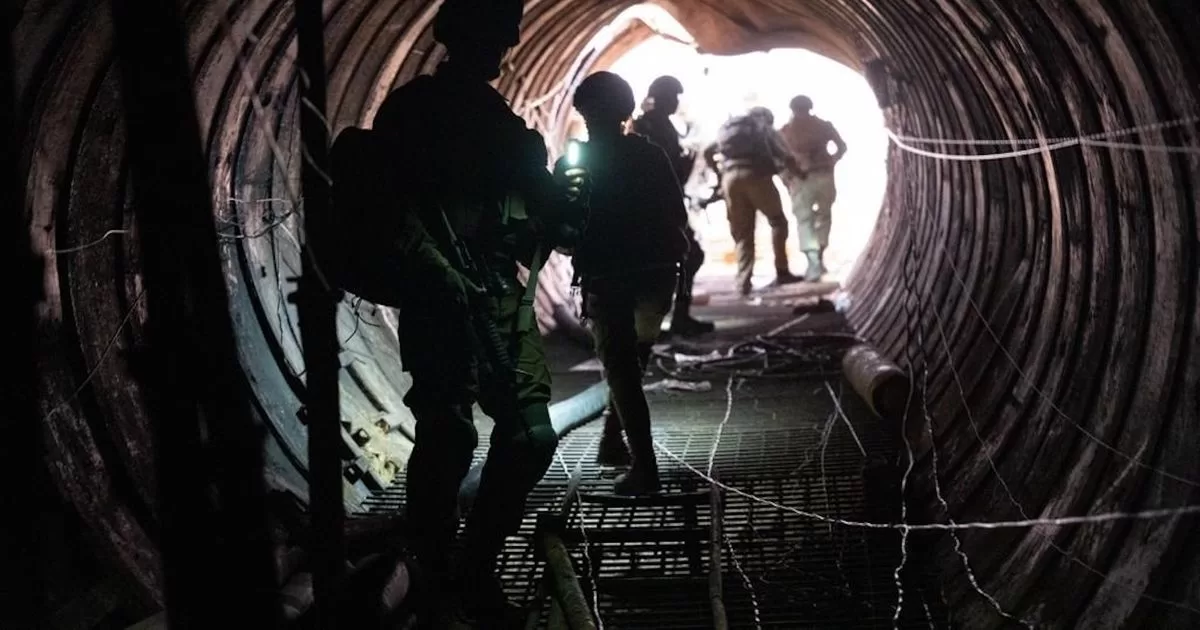Although, immediately after October 7, many experts read the death knell for normalization among Israel and Saudi Arabiarecent events demonstrate that those funeral rumors were exaggerated.
A key objective of the massacre that Hamas carried out that day was to trigger an Israeli response that would destroy all hopes for peace between the Jewish state and the most powerful Arab country, home to Islam’s holiest sites.
In the months before the war and with the mediation of the United States, the former enemies were taking gradual but steady steps towards their official mutual recognition, much to the fury of regional agitator and Hamas patron, Iran.
While the historic Abraham Accords between Israel and the United Arab Emirates, Sudan, Bahrain and Morocco saw the region positively transformed in ways previously unimaginable, peace with Saudi Arabia would be a global game-changer.
An Israeli pact with the desert kingdom, custodian of Islam’s holiest cities, Mecca and Medina, could forge a path to broader regional peace with nearly the entire Muslim world.
But now the world’s attention is focused on the Gaza war, with protesters in the main cities of the world cheering Hamas, a jihadist group with mafia traits opposed to liberal democratic values that oppresses the Palestinians under its control. However, those who actually live in the neighborhood are no fans of the Iranian-backed killers or their ilk who today wreak misery and havoc on Middle Eastern societies. Many people in the region watch in shock as support for Hamas, Hezbollah and other groups that violate their societies and devastate their countries is proudly expressed in demonstrations around the world.
So what’s the good news?
First, the positions outlined by Saudi Crown Prince Mohammed bin Salman about two weeks before the Hamas attack appear unchanged. The kingdom’s de facto leader said normalized relations with Israel “get closer” every day, adding that the Palestinians are a “very important” issue that must be resolved.
Months after the war, the process continues its course.
Saudi Foreign Minister Prince Faisal bin Farhan reiterated that stance this week, saying Riyadh would recognize Israel in a broader deal that also includes a Palestinian state.
And Secretary of State Antony Blinken delivered the same message to Israeli leaders amid the flurry of US diplomatic efforts with regional players since the war broke out.
The idea of a serious commitment to a path to the creation of a Palestinian state is difficult to swallow as Israel fights Hamas in the territory it evacuated. But the principle is a widespread goal for those who wish to preserve Israel’s Jewish and democratic character. This would require an amicable separation of the Palestinians under terms defined by lessons learned in the past.
Senator Lindsey Graham echoed these sentiments after meeting with Middle East leaders, telling Israeli press that since the Hamas attack, he is more determined than ever to pursue normalization efforts between Israel and the Arab world.
And then there are the lesser-known advocates of positive change who are working hard to make this vision a reality.
A closer look at released images of the meeting between Graham and the crown prince show that Jeffrey Talpins, founder and CEO of Element Capital, and Oren Eisner, president of the Talpins Foundation and Family Office, were also present. This is not a coincidence.
Talpins and Eisner are the co-founders of the N7 Initiative which has been quietly pushing for normalization in the Middle East for the past few years.
Also present was Morgan Ortagus, a State Department spokesperson during Trump’s presidency, who was also involved in the normalization efforts. None could be reached for comment.
Many challenges lie ahead for those who aspire to a peaceful Middle East.
The upcoming election season could affect American considerations regarding its side of the deal with Saudi Arabia. Iran may deploy another proxy to poison the atmosphere.
Hamas and its supporters around the world will attempt to sabotage the peace with violence and intimidation tactics. And whoever leads Israel in the near future will need to regain the nation’s trust before reaching agreements that require far-reaching territorial concessions.
But one detail is already clear: Hamas’s goal of dashing regional hopes for peace by starting this war has failed dramatically.


